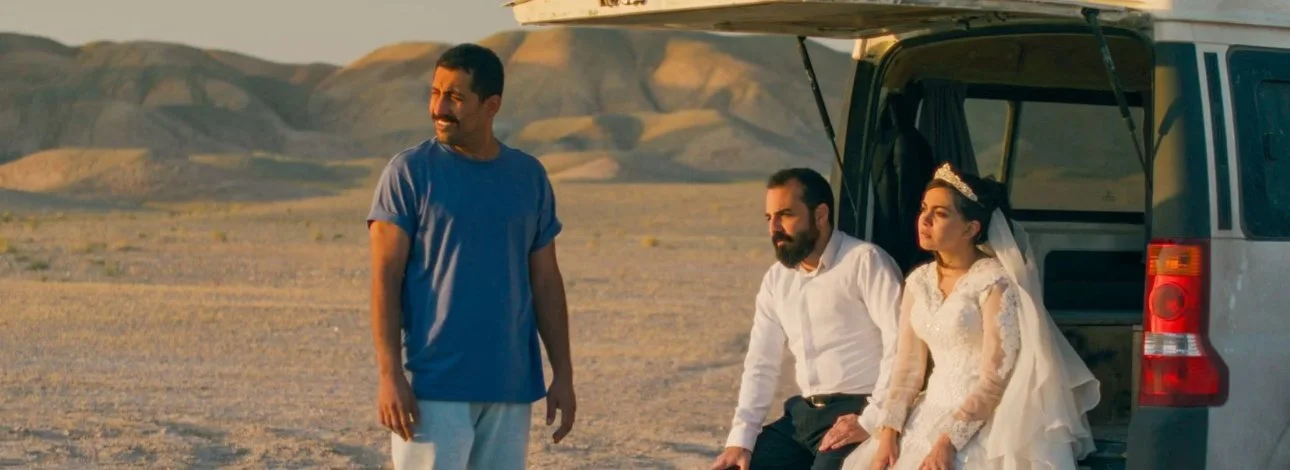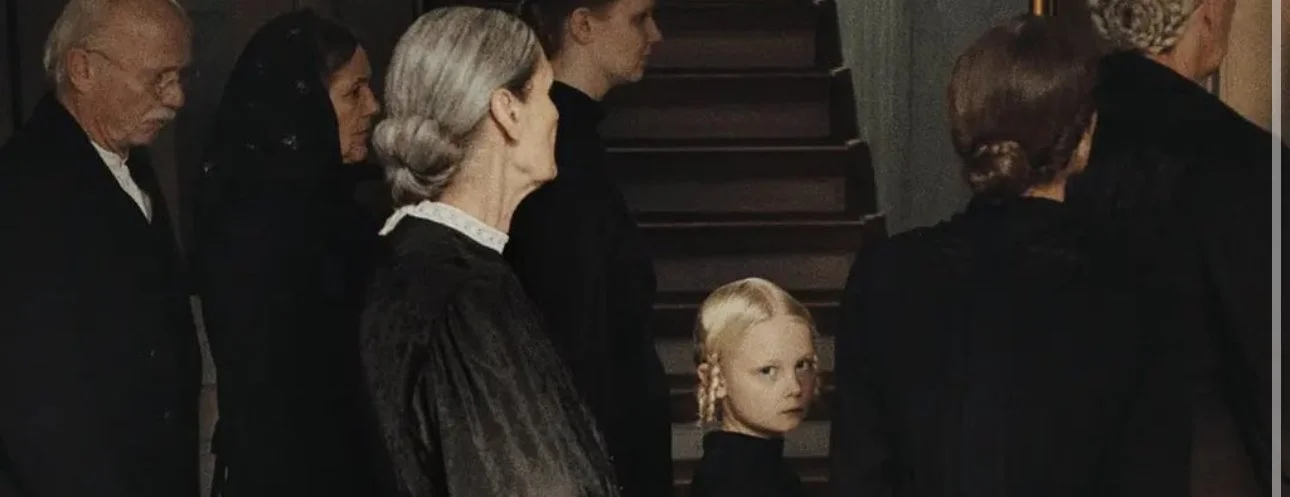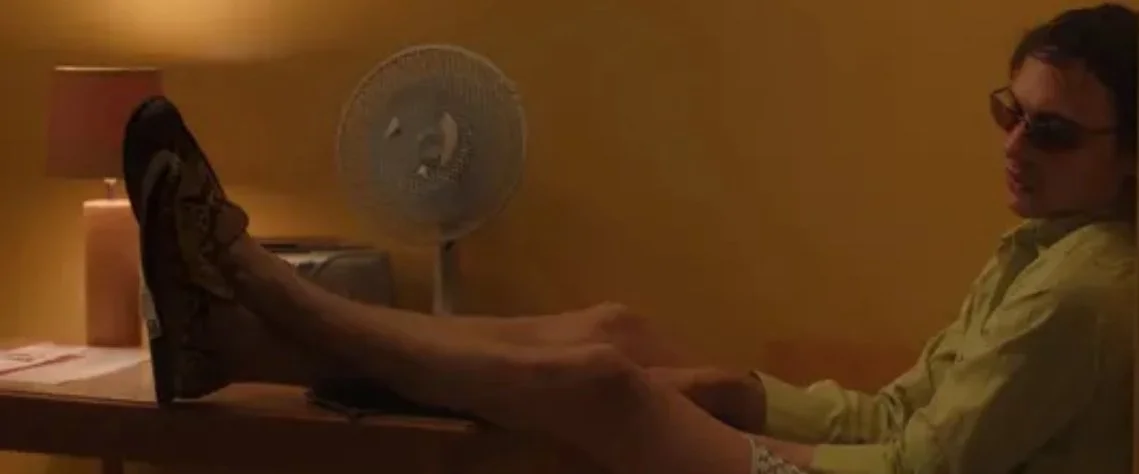Set in a 1980s Detroit inflicted by the crack epidemic and Reagan’s ‘War on Drugs,’ Yann Demange’s “White Boy Rick” tells the true story of Rick Wershe, a working-class father, who also happened to be an arms dealer, (played by the always excellent Matthew McConaughey) and the bond he built with his troubled, drug-dealing, teenage son, Rick Wershe Jr. (Richie Merritt). Junior ended up working for the FBI as an informant before being abandoned by them and sentenced to life in prison.
Demange’s film White Boy Rick is anchored by yet another high-level performance from the 48-year-old McConaughey who has now built up a solid body of work ever since the famous McConaissance started in 2011 with “The Lincoln Lawyer.” His work here, as a man torn between family and the law, is another note-worthy addition to an impressive filmography that only grows in stature with every movie.
We spoke to McConaughey, at the Toronto International Film Festival, about his latest role, what inspires him and why he doesn’t want to make his characters likable.
What inspires you to sign on to a movie?
Well, character, story and director. If I love a character and love a story but have a hunch that the director doesn’t cut the mustard then it might not be a go. With Yann Demange, I was a fan of ’71. In this film there’s a great dynamic. In this film, there’s the quiet drama and then BOOM there’s a raid, then you’re back to melancholy. So with this and his other film, you could tell that he knows his dynamic well. That’s what impressed me about 71, it had that lure you in, there were times in ’71 when I honestly jumped out of my seat and that doesn’t happen in many movies.
There are indeed structural similarities between both films
He and I should do a horror film together.
Wouldn’t that be great? I’d be first in line for that. Let’s get to White Boy Rick, did you know about this story? What kind of research did you do?
Well, I didn’t go out, I didn’t chase the biography of Rick Sr. He had also passed away so there’s not a whole lot of info. What I did know was the universality of these dads that turn into best friends with their kids, I’ve seen that recipe does not turn out to be the best for the kids. Here’s a guy that’s living on the hopes and dreams of a better future, that’s what’s having him hop out of bed every morning. At the same time, he’s just reciting nostalgias from the past, these platitudes, and he’s paralyzed in the present, he’s stuck. He’s not a doer, he’s a guy that can’t follow through. His heart’s in the right place, he’s got all the “want to,” he doesn’t have any can do. He comes up short all the time. He’s in a rut. He’s John Cazale, Fredo.
Fredo is exactly what I thought
You did? That’s part of what I did, he was the guy I went to. Fredo is the eldest that gets served by the younger brother, so who’s the doer in the family? My son. Jr. is the guy that gets things done. He becomes the breadwinner that serves John and leapfrogs Dad.
As a dad yourself I’m sure the themes must have resonated with you
Yeah, here’s a dad that unconditionally loves his kids. He’s trying to amend but he’s just a loser. He wants to be successful but can’t get it done. So, I wasn’t necessarily trying to go out to play a loser, I was trying to play a guy that was out trying to win but loses. So the place of loving my children, loving my family, that was an easy home base for me and to do that and to have my character keep failing, it’s a tragic scenario.
This movie is actually filled with losers, filled with people just trying to run a scam. How is it approaching a character that is not that likable?
He’s a bad dad.
But you do end up making him into this sort of anti-hero
You think so? Because he’s trying? Some people try to sugarcoat this guy, saying he’s a good dad and my response is “No, he’s not a good dad.” At least the way I look at it. And if you like him because his heart’s in the right place, bravo. But put down his deeds and he just don’t tow the line. He doesn’t cut the mustard. I don’t look at my job as making someone likable, my job is to try and make you sympathize, I don’t take roles thinking I hope they like me. I’m trying to dive into the humanity and show there are real people like this. I’m not judging, I’m not throwing a moral at him. There are bad dudes and there are bad dads, there are guys that don’t tow the line. Any art, if you see yourself in it, if you go “I know who that is,” or “it’s not me but I know someone like that,” or “I didn’t know there were people like that,” then art is translating with the viewer. You want to get something from it.
Did you speak to any gun dealers in your research?
No, I didn’t. I know street hustling, I know what’s legal and what’s not legal. As you mentioned, everybody in this film is getting away with something on the shady side, but it’s not an ugly movie. Everybody in the movie you understand and Yann didn’t want to glorify drugs or violence, but he also didn’t sugarcoat it. He approached it level-eyed and authentically. This is just what people to survive in these bad situations.
This is also a movie that feels relevant today. Its depiction of Detroit seems about the same as it is today.
Totally. We didn’t film in Detroit, but in Cleveland and even there, on the streets, you see where the American dream ended. You see big plants closed. I’ve never seen more shops and churches boarded up. You see all these big plans such as homes, malls etc. all boarded up. It didn’t happen.
The movie takes place around the time Detroit was on a severe decline
Well, at some point Detroit was rolling. My character’s dad’s generation had success there. Back then if you got the opportunity to do your job you had the luxury of owning a house and building a fence. That was the American dream, it was accessible, now it is not. The rules changed. If you do those same things now, like work hard, you can fail.





